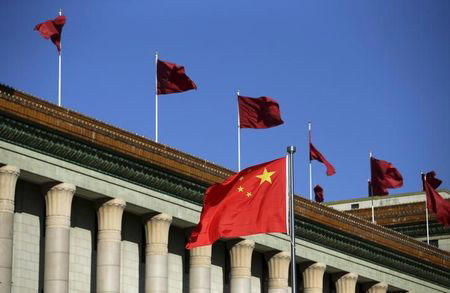On Tuesday, China’s Politburo held its pivotal July meeting, a key decision-making forum within the Chinese Communist Party (CCP). The meeting reaffirmed the country’s commitment to its annual economic growth target and introduced plans for additional stimulus measures focused primarily on boosting consumer spending. This approach represents a notable shift from China’s traditional economic strategy, which has heavily emphasized infrastructure investments as a means of driving growth.
Focus on Consumption
The Politburo’s emphasis on stimulating consumption marks a strategic deviation from its historical focus on large-scale infrastructure projects. Analysts at Citi highlighted this shift as a positive development, suggesting that it reflects an understanding of the need to stimulate domestic demand to sustain economic momentum. However, they also noted that this focus on consumption is a departure from the more proactive measures that might be necessary to counterbalance the current economic challenges.
Analysts’ Concerns and Critiques
Despite the renewed focus on consumption, Citi analysts have expressed reservations about the effectiveness of the proposed stimulus measures. They described China’s approach to stimulus as “generally reactive,” pointing out that the measures introduced so far have been incremental rather than transformative. According to Citi, there has been a noticeable lack of concrete actions aimed at improving household income and consumer sentiment, which are crucial for driving sustained economic recovery.
Furthermore, the analysts raised concerns about the absence of detailed plans to address the struggles within the property market. The real estate sector has been a significant source of economic strain in recent years, and without targeted support, the sector’s challenges could continue to weigh on overall economic growth.
Implementation and Investor Confidence
Citi emphasized the critical importance of follow-up policy implementation. The analysts warned that without substantial and well-defined actions, investor confidence could remain fragile. They stressed that the effectiveness of the stimulus measures will depend heavily on how they are executed and whether they can translate into tangible improvements in economic conditions.
Morgan Stanley’s Perspective
Morgan Stanley echoed the cautious stance, noting that while the July meeting reaffirmed the commitment to supportive policies, it did not provide substantial new information or actionable plans. The brokerage observed that the previous year’s July meeting had also promised more supportive measures but had resulted in only “piecemeal” actions. This historical context contributes to skepticism about the current stimulus plans, as there is concern that they might also fall short of delivering significant economic improvements.
Market Sentiment and Economic Outlook
The broader economic context has contributed to growing concerns about China’s economic trajectory. Recent months have seen a deterioration in sentiment towards China, exacerbated by disappointing economic growth figures for the second quarter and the lack of clear, impactful stimulus measures. The local stock market has experienced notable declines, reflecting investor anxiety about the country’s economic prospects.
The Politburo’s focus on consumption, while a strategic shift, comes against the backdrop of an uncertain economic environment. The effectiveness of the proposed measures and their impact on the economy will be closely monitored by both domestic and international stakeholders.
Conclusion
The July Politburo meeting signifies a strategic pivot towards stimulating consumer spending as a means of supporting economic growth. This shift reflects an acknowledgment of the need to bolster domestic demand amid current economic challenges. However, the effectiveness of the measures remains uncertain due to the incremental nature of past stimulus efforts and the lack of detailed plans for critical sectors like real estate. As China navigates these economic challenges, the success of its policy implementation will be crucial in shaping investor sentiment and determining the country’s economic trajectory for the remainder of 2024.
